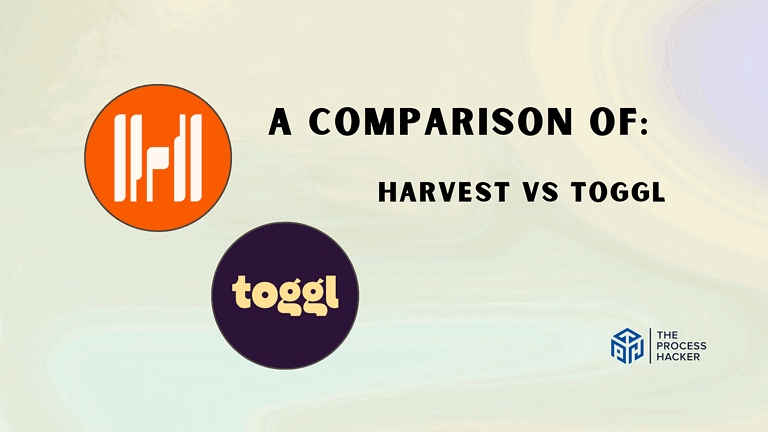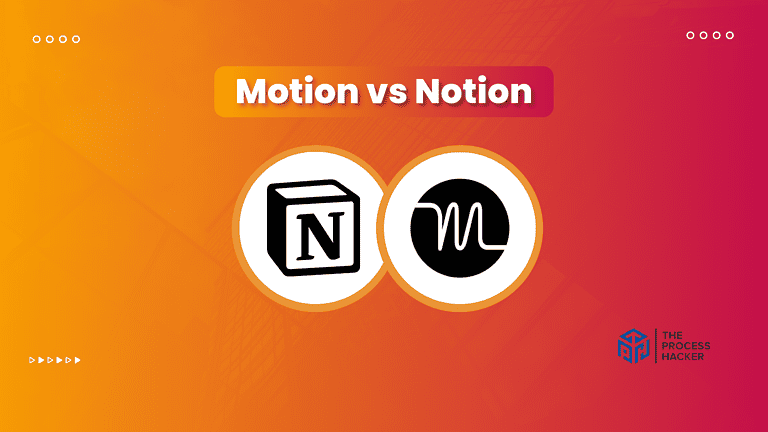What is a Business Process Consultant? Why Hire One?
Does your business sometimes feel like a ship lost at sea without a clear course or direction? Or perhaps it’s stuck in stagnant waters, struggling to keep pace with the competition?
A business process consultant can be the experienced navigator you need to steer your company toward smoother sailing.
But what exactly does a business process consultant bring to the table? And more importantly, why should you consider investing in their expertise?
In this guide, we’ll explore the world of business process consulting. You’ll learn how these professionals can optimize workflows, enhance efficiency, and ultimately bolster your bottom line.
So, prepare to transform your business from chaotic to streamlined, from stagnant to thriving. Read on, and let’s unlock your company’s full potential together.
What Is A Business Process Consultant?
A business process consultant is a professional who specializes in analyzing and improving how a business operates. They dive deep into your existing workflows, identify inefficiencies, and recommend solutions to optimize processes.
Think of them as mechanics for your business engine, ensuring everything runs smoothly and efficiently.
What Business Process Management Consulting Services Do They Provide?
Business process consultants offer a wide array of services to transform your operations; here are some of the key areas they specialize in:
Business Process Optimization and Assessment
People who hold business process consultant jobs meticulously examine your current processes, identifying bottlenecks, redundancies, and areas for improvement. They then develop tailored strategies to streamline operations, enhance efficiency, and reduce costs.
For example, in your order fulfillment process, a consultant would notice that manual data entry is causing unnecessary delays and increasing the likelihood of errors; they won’t just pinpoint the problem; they’ll act on it.
They might propose integrating an automated system that not only accelerates the entire process but also significantly reduces the margin for error. This solution ensures that orders are processed faster and more accurately, enhancing customer satisfaction and driving down costs associated with corrections and returns.
By implementing such strategic enhancements, consultants help your business operate more smoothly and efficiently, ultimately boosting your bottom line.
Technology Implementation and Integration
Keeping up with the latest technology is crucial for modern businesses. Consultants can guide you through selecting and implementing the right software solutions, ensuring seamless integration with your existing systems for optimal performance.
For example, a business process consultant does more than just suggest a Customer Relationship Management (CRM) system. They evaluate multiple platforms to find the one that best suits your specific needs.
For instance, if you focus on enhancing customer interaction and automating sales processes, the consultant will pinpoint a CRM that excels in these areas and integrates effortlessly with your current email marketing and sales tools. This alignment and integration will create a unified system where data flows seamlessly, which improves efficiency and provides deeper insights into customer behaviors and sales trends.
With their expert guidance, you can leverage technology not only to meet but exceed your operational expectations.
Change Management
Introducing new processes or technologies can be disruptive. Consultants help you navigate these changes smoothly by developing effective communication plans, providing training, and ensuring employee buy-in for a successful transition.
For example, if you’re rolling out a new project management system, a consultant plays a crucial role in its successful adoption. They would design a comprehensive training program tailored to the needs of your staff, ensuring everyone is proficient in using the new system.
Moreover, they address any concerns or resistance from employees, helping them understand why the change is critical and how it will make their work more efficient. This proactive approach educates your team and secures their buy-in, which is critical for a smooth and effective transition.
Performance Measurement and Monitoring
How do you know if your efforts are paying off?
Consultants establish key performance indicators (KPIs) to track progress and measure the impact of their recommendations. This allows you to make data-driven decisions and continuously improve your operations.
For example, a business process consultant might set up KPIs to monitor aspects like customer satisfaction, order processing time, and employee productivity after implementing new processes or systems. By doing so, they provide a concrete way to evaluate whether the modifications are yielding the intended benefits.
This ongoing measurement allows for real-time feedback and data-driven insights, enabling you to fine-tune your operations continuously. As a result, you can make informed decisions that address immediate needs and position your business for the long run.
Strategic Planning and Advisory
Beyond day-to-day operations, consultants offer valuable insights into long-term goals and planning. They help you align your processes with your overall business goals, identify growth opportunities, and develop strategies to stay ahead of the competition.
Take, for instance, creating a comprehensive marketing strategy. The right consultant doesn’t merely focus on operational efficiency; they can also see a more accurate picture of your overall business and processes.
By analyzing current market trends and competitor strategies, they can identify unique opportunities for your business to capitalize on. This could involve targeting underserved market segments or leveraging emerging technologies in marketing.
The result? A robust marketing plan tailored to attract more customers and significantly boost your revenue. This strategic advisory ensures your business can adapt to market conditions and thrives in a competitive market.
What Are The Benefits of Hiring A Business Process Consultant?
Investing in a business process consultant can yield a wide range of advantages that contribute to the overall success and growth of your company. Here are some of the key benefits you can expect:
1) Improved Efficiency and Productivity
A business process consultant analyzes your current workflows and identifies areas where bottlenecks or inefficiencies exist. By streamlining these business processes, you can significantly boost productivity and free up valuable time and resources for other critical tasks.
2) Cost Reduction
Inefficient processes often lead to unnecessary expenses. A consultant can pinpoint these cost drains and implement solutions to minimize waste, optimize resource allocation, and ultimately lower your operational costs.
3) Enhanced Customer Satisfaction
Streamlined, improved processes often translate to better customer experiences. By improving response times, order fulfillment, and overall service delivery, you can increase customer satisfaction and loyalty, leading to higher retention rates and positive word-of-mouth.
4) Data-Driven Decision Making
Consultants help you establish key performance indicators (KPIs) to track and measure the effectiveness of your processes. This data-driven approach enables you to make informed decisions based on tangible evidence, ensuring that your actions align with your business goals.
5) Increased Agility and Adaptability
In today’s fast-paced business landscape, adapting to change is crucial. A consultant helps you develop flexible processes that can quickly adjust to market fluctuations, new technologies, or evolving customer demands, keeping you ahead of the curve.
6) Access to Specialized Expertise
Business process consultants bring a wealth of knowledge and experience to the table. They stay up-to-date with the latest industry trends, best practices, and technological advancements, allowing you to leverage their expertise for your own benefit.
What Qualifications Should You Look for the Right Business Process Consultant?
Whether you are the business owner or part of the human resources department, to ensure you’re partnering with a top-tier business process consultant, pay close attention to these qualifications:
1) Proven Experience and Expertise
Look for a consultant’s track record of success in your industry or a related field. They should have experience working with different companies that are similar to yours in size and complexity. Also, they should be able to provide case studies or references demonstrating their capabilities.
2) Relevant Certifications and Training
While not always mandatory, professional certifications in business process management (BPM) or related disciplines can indicate a consultant’s knowledge and commitment to their craft. Look for credentials from reputable organizations like the Association of Business Process Management Professionals (ABPMP).
You can also look for their professional network or the group they belong to to ensure you’re hiring the right person with the right network.
3) Strong Analytical and Problem-Solving Skills
A successful consultant possesses keen analytical skills to dissect complex processes, identify root causes of issues, and develop practical solutions. They should be able to think critically, approach problems from multiple angles, and propose innovative solutions that align with your business goals.
4) Excellent Communication and Interpersonal Skills
Clear and effective communication is essential for any consultant. They should be able to articulate their findings, recommendations, and strategies in a way that’s easy to understand and implement.
Strong interpersonal skills are also crucial for building rapport with your team, fostering collaboration, and ensuring a smooth implementation process.
5) Adaptability and Flexibility
Every business is unique, and a good consultant understands the importance of tailoring their approach to your specific needs and challenges. They should be adaptable, open to feedback, and willing to adjust their strategies as needed to ensure the best possible outcomes.
6) Results-Oriented Mindset
Ultimately, you want a consultant who is focused on delivering tangible results. Look for someone who is passionate about helping businesses succeed, who sets clear goals, and who is committed to tracking progress and measuring the impact of their work.
Final Thoughts on Business Process Consultants

A business process consultant is an invaluable asset for any company looking to streamline operations and achieve ultimate success.
These experts bring a wealth of knowledge and experience to the table, from analyzing current processes and identifying areas for improvement to implementing efficient solutions and providing ongoing support. By hiring a business process consultant, you are not only investing in your company’s growth and success but also freeing up valuable time for yourself and your team to focus on other important tasks.
So why wait? Schedule a call with us today to take the first step towards optimizing your business processes. Our team of highly skilled consultants is ready to help you reach your full potential and take your business to new heights.
Thank you for reading our blog post on hiring a business process consultant; we hope it has been informative and helpful! Remember, success is just a phone call away.







